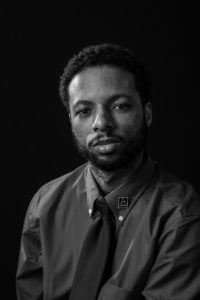
Year in Program: 3
Fields: African American Women’s History, U.S., African, and Caribbean.
Advisor: Dr. Pero Dagbovie
Committee: Dr. Pero Dagbovie (Chair), Dr. Nwando Achebe, Dr. Glenn Chambers, and Dr. LaShawn Harris
Research Languages: English and Spanish
Educational Background: University of California, Santa Cruz (B.A.), Clark Atlanta University (M.A.), Michigan State University (Ph.D.).
CV:
Email: massenb2@msu.edu
My name is Moses Massenburg and I was born and raised in Los Angeles, California. I am currently a doctoral student and Instructor in the Department of History at Michigan State University. I pride myself on being both a community activist and academic. I am a passionate African American cultural preservationist and I serve on the Executive Council of of the Association for the Study of African American Life and History in Washington D.C.
My Current Research Project
Much has been written on the contributions of professionally trained historians such as W.E.B. Du Bois, Carter G. Woodson, and John Hope Franklin to the institutionalization of the Black History profession. Less has been written on the contributions made to the field by activist and thinkers outside of the academy. Black women, despite their dedicating their lives to forwarding the study of black life and culture, have especially been neglected as significant agents of change in American history proper. My dissertation will cover the two distinct periods of African American history ranging from the Great Depression until the end of the Black Power Era. This work aims to highlight a diverse group of individual Black women as key players in the long movement to institutionalize Black History at both the professional and grassroots level. I will engage Mary McLeod Bethune’s Presidency of the ASNLH from 1936-1951 and her philosophies on the purpose of black history. Further, will explore the National Council of Negro Women’s local and regional black women’s history initiatives under Dorothy Height as influential to the early career path of Black woman historian Darlene Clark Hine. Given the importance of archives and archivists to the historical profession, I will also locate the contributions of archivists Vivan G. Harsh and Dorothy Porter Wesley are the forefront of nineteenth century black history cannons. Lastly, I will engage Angela Davis’s to contexts from which Angela Davis wrote her 1981 Women, Race, and Class to influence approaches in early American history. Together, these Black women educators, organizations, activists informed the institutionalization of Black women’s history from the Great Depression until the end of the Black Power Era and beyond.